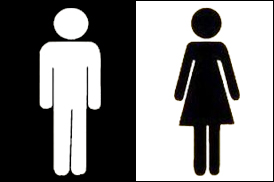 I ran across this very interesting column on the Huffington Post by Kergan Edwards-Stout.
I ran across this very interesting column on the Huffington Post by Kergan Edwards-Stout.
Edwards-Stout, who is a gay man and an author, contemplates whether a straight person can write gay fiction.
He asks this question in the context of a broader question about writers who conceal their sexual orientation, calling themselves gay when they are straight in order to lend authenticity to their gay fiction. He concludes that a good story is a good story regardless of who wrote it but that if you’re writing gay fiction and calling yourself gay, you really should be gay. Hard to argue with that.
His column made me think about several things. The first is the extent to which fiction must be authentic and what does that even mean. SciFi, fantasy, horror and other genres require the reader to suspend disbelief and readers are happy to do that if they get a great story in return.
I want to create a fictional world that readers can enter, believe in and enjoy but how real does it have to be? If one of my crime novel characters uses a gun, I’d better get the details right or I’ll hear about it. Same with other kinds of details. A writer who is a good friend was telling me that he had to create an island for the book he was writing but that he had to put it in the right place even though it was fictional. But those are details albeit important details.
What about characters? Do they have to be authentic and, more to the point, can an author create authentic characters that are so different from himself or herself? The answer has to be yes. If it weren’t, every book would be written in the first person and would feature only one character that was the author’s avatar. So that can’t be the issue.
I think it comes down to this. Good fiction, believable fiction does have to be authentic in the sense that the author has to create characters that the reader can recognize as real or realistic and capture the voices of those characters. My next crime fiction book, Stone Cold, introduces a gay, female character, Alex Stone, a public defender with her own brand of justice. I’m a heterosexual male so what in the hell do I know about this character and what makes me think I can make her authentic?
I can make her authentic because I know how she thinks, what she cares about, whom she loves and what she’s afraid of. I know how far she’s willing to go to get what she wants. Her sexual orientation is just one aspect of her character. It doesn’t define her nearly as much as her wants, needs and fears do and it doesn’t dictate her actions nearly as much as do her values and ambitions. Understanding all that enables me to lend her authenticity.












I think writing is the act of "borrowing" a character's point of view long enough to use it. If you respect that character, then, it will be authentic. If you don't, it will ring hollow.
John, that's a very interesting perspective. While writers think in terms of creating characters, your insight recognizes each character as a unique creation that lives within the story. In that sense, the author does borrow a character's POV. Once we create someone, I suppose it's only polite to borrow them rather than steal them!
that's what I think if I read a book, and the character starts doing things that seem "out of character", that the author stopped listening to the character and started ordering it about against its will